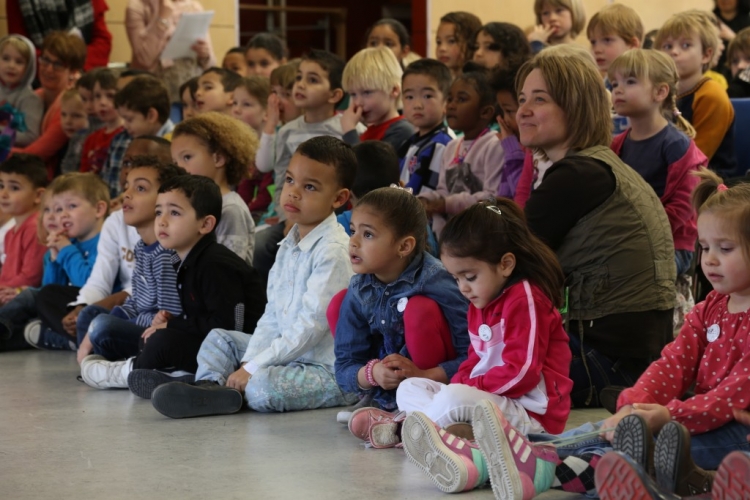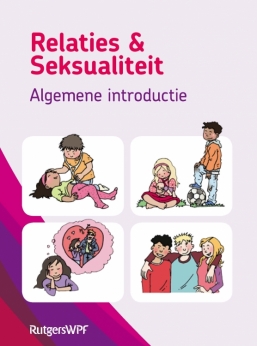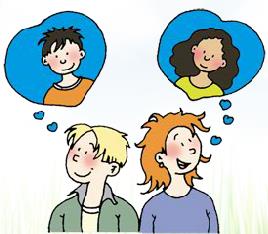A Different Approach to Sex Education

When I think of the Netherlands its normally when I hear my peers talking about all the cool things to do there, like smoking pot in cafés or visiting the Anne Frank house for some deep reflection. That is until I found out about their cool sexual health education system. Earlier this year American television network PBS did a feature called “The case for starting sex health education in kindergarden,” which highlighted the unique structure of Dutch education program. By law this program starts sexual health education in primary school. How do they do this? Certainly not by giving seven year olds the sex talk. They do it in the most innocent way possible: With love.
While the five-year old kindergarteners do not learn about reproduction or sex directly, they begin to understand how to express their feelings of love or friendship. They learn when and when not to hug or kiss and how to express themselves in a respectful and caring way. These relationship-themed lessons continue and advance as the students become older.
One of the Dutch experts featured in the article says, “Sexuality is so much more than that. It’s also about self-image, developing your own identity, gender roles, and it’s about learning to express yourself, your wishes and your boundaries.” They also state, “We have to help young people navigate all the choices they face and stand up for themselves in all situations, sexual and otherwise.” It's great that Dutch children grow up learning how to treat people they are attracted to with respect-unlike most educational systems.
In the Netherlands, every year schools have a “spring fever” theme week where students of different ages learn different parts of sex ed. As the students reach puberty they have classroom discussions and lessons on how to confess romantic feelings for their classmates. They have an anonymous “question box” where 11 year olds can ask questions for the teachers to answer to the whole class.
There is even a clip on the PBS website of a young woman teacher explaining to a co-ed classroom of 11-12 year olds how to end a relationship in person. The same classes discuss how to respond to feelings of homosexuality. The article points out that most of the Dutch population younger than 25 desribe their first sexual experiences as “wanted and fun.”
I read this article and found myself thinking, “What a cool, interesting, creative system. This would never happen in the US.” Sure enough, fewer than half the states in the US require sex education, and those that do emphasize the importance of abstinence and the risk of pregnancy or sexually transmitted diseases. Sex ed becomes a list of what not to do, and 4 out of 10 young Americans do not find this system useful.
The PBS article quotes Bill Wright, a Utah State Representative who created legislation to restrict sex education in public schools. “It is just basically something out there that takes away from the character in our schools and takes away from the character of our students,” he says.
This “bad character” statement really struck me-it seems so incredibly old fashioned and impractical. It also resonates with certain cultures in the “global south” who resist HIV treatment and safe sex methods for similar reasons: “bad character”, “not traditional”, and “immoral”. Basically Dutch teens learn more about sex than teens in Utah. Not only that, but they are raised to see sex within a relationship context, a way to show affection, or an experience between two people. I think this is a practical and healthy way to introduce the subject.
Learning aboout the Dutch system made me think hard about the shortcomings of American sex education. In the U.S. sex education is normally introduced in middle school or high school to explain puberty, sexually transmitted diseases, sexual predators, and the importance of consent and condoms. Most of my primary school education took place in private schools in New York state. I never received these talks in detail. In science class we glossed over the reproductive system and in high school sex occasionally came up in school speeches-normally under the subject of online predators, under aged drinking, or peer pressure.
I remember my first year of college comparing school experiences with a friend. She was shocked that I had never learned how to put on a condom in health class. She went to a public high school in Southern California. I went to a private, college-prep school and she knew more about basic safe sex-protocol than I did. In our public health classes, we learned CPR, how to handle choking babies, and wrote reports about health. Condom use 101 was not included.
This surprised me. My school wasn’t particularly old-fashioned. Sex was by no means “taboo.” Abstinence wasn’t overly encouraged. We had a Gay Straight Alliance student club and a strong no-bullying policy. English class content was not censored and the literature curriculum addressed the sexual themes in books like The Odyssey and the Catcher In The Rye.It is true that that some parts of the U.S are more conservative than others. Americans struggle to address sexual health and acknowledge that sex-ed is an important part of education, both for individual teenagers and for a healthy society. The Dutch, however, recognize that young people need to learn about sex education in order to become responsible, healthy citizens. I think their love/relationship approach to sex-ed is creative and impressive. We should learn from this in the U.S.
(Photos: PBS)









